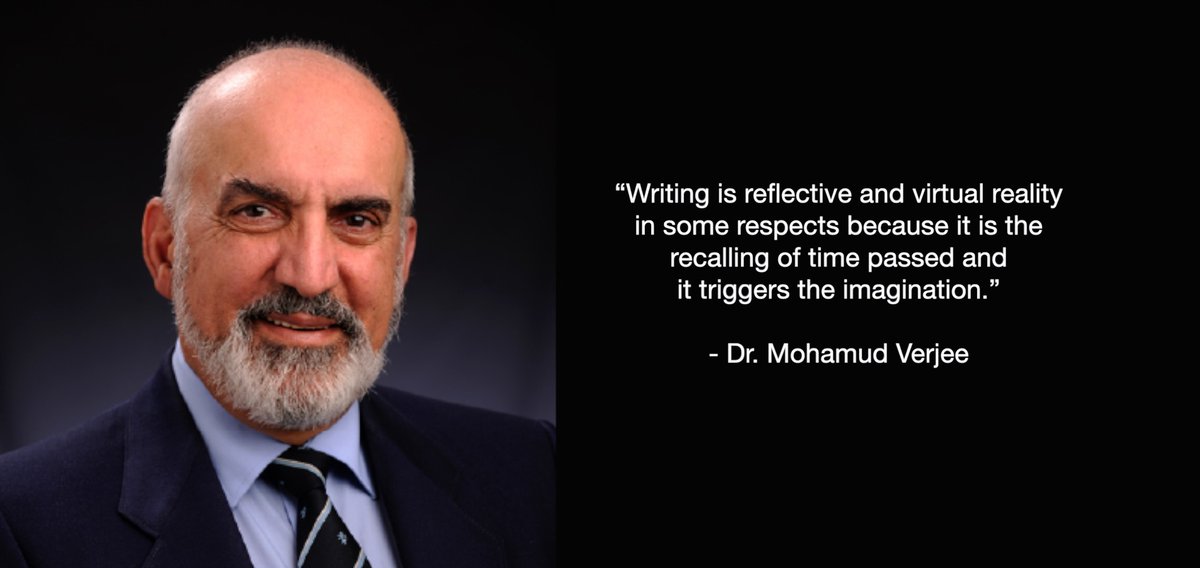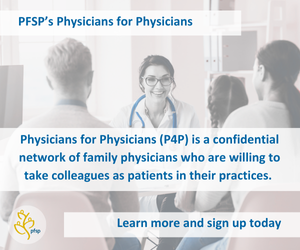Dr. Mo Verjee is a semi-retired family physician in Calgary. He continues his work in clinical practice because he is happy to do it. But Dr. Verjee has noted colleagues who seem unhappy in their work and are on their way to burning out. He wants to help them.
“It strikes me that a lot of people are either in the beginnings of burnout or are very liable to proceed down the trap where they could actually be in some trouble in managing their own lives and finding a balance between work and home.”
With a lifetime of experience and observation, Dr. Verjee has lived and worked around the world, including the UK, the Middle East and rural and remote Canada. Regardless of location, he has observed similar burnout patterns among some colleagues. What wisdom can he offer on how to be happy and manage burnout, and how to leave work behind at the end of the day?
Take care of yourself
“It is very important to look after yourself. Who cares for the carer? What is your support system?” To start, when you are your carer, you must “…keep yourself in good shape; avoid temptations of the foods which are not going to do any good; sleep well – it’s very important to have at least seven to nine hours.”
Structure your workday and practice gratitude
Dr. Verjee suggests keeping yourself and your day organized and ensuring you take sufficient breaks.
“You need to have a structure. You need to have a discipline. If you have office visits from 9-4, you need to plan [ahead]. You need to be there on time. The last thing you want is to arrive to find your computer and email don’t work and so-and-so needs you to call back. It becomes chaotic and then you’re grumbly for the rest of the day. You’re in a bad mood and can’t recover. I’ve seen this with my colleagues everywhere.”
It is also important to reflect upon the things in your workday that made you feel good.
“If you are organized, give yourself sufficient breaks during your consultation time. You [will] actually feel that you’ve done something purposeful and useful for your patients, even if it’s just listening or ordering prescriptions or investigations. Then, when it comes to lunch time you can feel ‘Oh, that was a good morning.’ You apply yourself and [take] your time to do your notes then go home.”

Develop a rapport with patients
Clinical relationships, particularly physician-patient relationships, have their challenges, but Dr. Verjee does not believe that the difficulties always come from the patients. “It is the carers – physicians like me – that can make it more difficult for the patients. [We are] truncating their consultation time, not listening to them properly, asking them a barrel of questions. And this all creates stress on the carer.”
How does Dr. Verjee approach patient care? “The first thing I say when I see them is ‘Hello, good morning. Before we start with what you came for, tell me, how do you feel today?’ It disarms them because they’re not expecting it at all, and I get a sense of how they really feel rather than just the specific problem they’re in to see you for. [The patient] opens up and tells you everything.
“[It is] important to find out about your patients’ history, on a confidential basis, and their background.” Dr. Verjee imagines a patient coming in, with a complaint they are having – a problem with their hand – and it is hindering their ability to play piano. This launches an opportunity to develop a rapport with the patient and to ask what they like to play. This bit of conversation can broaden the professional relationship.
Dr. Verjee gives another example of a patient that has fallen off her horse. “A lady has an injury from falling off a horse and then the next time you see her, she is perfectly well. You [could] ask her, ‘are you still horse-riding?’ [These] little bits of information that you pick up make you feel happy while talking. [You’re] not just dealing with a complaint that you must fill a time slot with. You introduce your own personality without being too personal and you have a rapport, and that is one of the more satisfying things that can happen.”
Developing a rapport with a patient upon discovering you have shared interests creates a feeling within you as a physician. Dr. Verjee says that the “first thing you notice is a smile. You set them at ease. Once you show them you’re listening, there’s total engagement. You have to be able to connect and it’s important [for you] to feel you have done something positive.”
Cultivate a well-rounded identity
Part of Dr. Verjee’s identity is being a physician, but it isn’t his entire self. He recommends adding diversity into your life, including socializing and intentionally meeting new people. He also prescribes creative pursuits. He used to play piano and the bassoon, and recently began learning how to play the cello.
“I’m not successful at everything, but it’s the ‘trying’ and ‘having a go’ [that is important].”
Along with music, Dr. Verjee also loves reading, especially fiction, and he also loves writing – specifically poems. “Writing is reflective and virtual reality in some respects because it is the recalling of time passed and it triggers the imagination.”
Having something that forms the rest of your identity outside of work is important, and for Dr. Verjee, it is a strong indicator of how he avoids burnout. “Many years ago, when I started practice, I didn’t know what burnout was. It is not a medical diagnosis but is sometimes transposed for stress or other things like anxiety. Burnout is a progressive thing. [It is] very important and not to be dismissed easily, but the signs are there and if you diversify [your life] into doing things that you like interspersed with your professional work, it helps relieve you, keeps you calm, keeps you focused.”
Summing up
In summary, to reduce burnout or avoid it in the first place, Dr. Verjee says:
- Take care of yourself. Keep well. Eat well. Avoid processed food. Exercise.
- Structure your workday, keep yourself organized and take sufficient breaks.
- Nurture your professional relationships. Develop a rapport with your patients
- Add variety to the kind of work and life you have without overextending yourself.
- Find out what you’re good at and don’t be afraid to try something new.
“The essence to impart is to remain positive in life, even when under pressure. We need to constantly remind ourselves of our unique motivation to be personally positive when there are so many challenges in one’s professional life,” concludes Dr. Verjee.
Freedom
- Dr. Mohamud (Mo) Verjee
An afternoon at a favored beach, no constraint of time
My, the tide is out, and there’s half a mile of sand today
Kick off your shoes, loosen your belt, undo a button or two
Feel the soft sand between your toes, leave footprints
Sense an occasional crunch of a discarded shell, sharp
Pop, another sound as you tread on seaweed bladders
Dark green fronds in serried ranks, all lined up in a row
Walking, soft, powdery sand gives way to a firmer surface
Minutes pass unnoticed, mind jogged at the water’s edge
Lapping slowly in gentle waves, barely ankle-high
Change of direction – the tide is turning, coming in
Advancing, unthreatening, friendly, a foot or two each time
Each wave washes, overlapping noiselessly, in transience
The coolness of the water on the skin soothes the soul
The falling sun mellows the light, rim gold to red fire
See breezes make you inhale, stop, listen to your breath
Sense your heartbeat, liberation, and allow the mind to wander
It is time to wend one’s way back inland, a fruitful pastime
Outpacing the advancing, teasing water line, effortlessly
Enabling freedom against the forces of Mother Nature
Clouds wave to you in the sky, skidding across pink-blue hues
What freedom of thought have you chanced to ponder?
Only the goodness of your lifetime partner walking beside you


